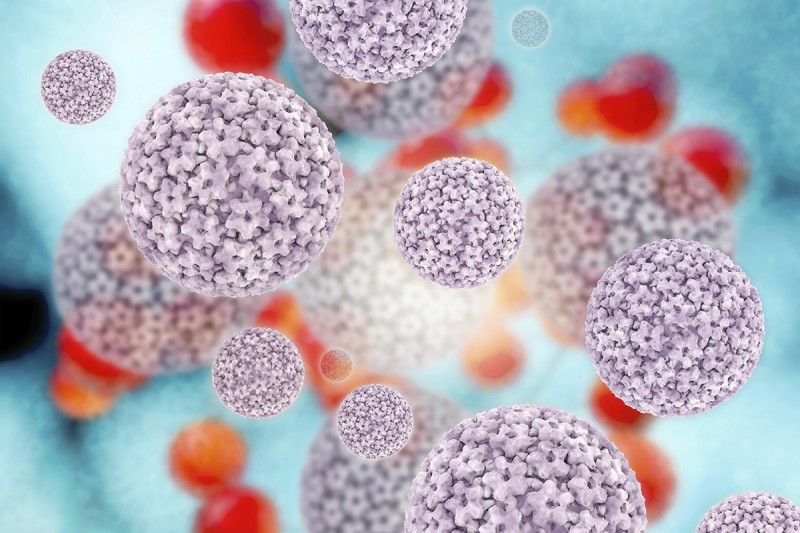
The human papillomavirus has been linked to increased risk for many types of cancer.
Update: On October 5, 2018, the US Food and Drug Administration announced that it had expanded the approved use of the Gardasil 9 vaccine to include women and men aged 27 through 45 years. “Today’s approval represents an important opportunity to help prevent HPV-related diseases and cancers in a broader age range,” said Peter Marks, director of the FDA’s Center for Biologics Evaluation and Research, when making the announcement.
Original post: Today, Memorial Sloan Kettering united with other top cancer institutions in an unprecedented statement urging widespread vaccination to prevent human papillomavirus (HPV) infection. MSK was one of 69 National Cancer Institute (NCI)–designated cancer centers to sign the consensus statement advocating that increased vaccination would prevent many cases of cancer known to be caused by HPV. Read the full statement.
The importance of the vaccination was highlighted last week by a study published in JAMA Oncology, which found that people who were detected to have oral HPV had a sevenfold increase in the risk of subsequent head and neck cancer. The number of HPV-related head and neck cancers has increased dramatically in the United States, especially among men.
HPV is also responsible for the vast majority of cervical, anal, and several other genital cancers. The link between HPV and cervical cancer has been widely known, and the introduction of the HPV vaccine in 2006 — for use initially in preteen girls — caused a sharp reduction in infection in this group.
Head and neck cancers (mainly cancers of the throat, including the soft palate, the base of the tongue, and the tonsils) were traditionally associated with heavy alcohol and tobacco use. However, over the past decade, evidence for an association between HPV and head and neck cancers has grown significantly. Both the consensus statement and the new study aim to help increase awareness of this connection.
“This consensus statement from the nation’s leading cancer institutions does two important things,” says David Pfister, Chief of MSK’s Head and Neck Oncology Service. “First, it highlights that HPV vaccination is not just about cervical cancer, or even the various genital cancers — it offers the opportunity to decrease the risk of cancer at other sites in the body as well. Also, now that HPV vaccination is on parents’ radars, they will be more likely to ask about it the next time they take their child to the doctor.”
Richard Wong, Chief of MSK’s Head and Neck Service, explains, “While not enough data exist to conclude that the HPV vaccine will prevent head and neck cancers yet, most of us in the field are confident that it’s just a matter of time. The vaccines provide very strong protection against the virus as well as cervical infection and precancerous lesions. We expect that its effectiveness in preventing oral cancers will follow what’s already starting to be seen with cervical cancer.”
Every year, 27,000 people in the US are diagnosed with an HPV-related cancer, which amounts to a new case every 20 minutes. Despite the HPV vaccine’s proven safety and effectiveness, vaccination rates remain low. Only 40 percent of girls and 21 percent of boys are receiving the recommended three doses of the vaccine. Research shows there are several barriers to improving vaccination rates, including a lack of strong recommendations from physicians and parents, who may not understand that the vaccine protects against several types of cancer.
MSK gynecologic surgeon Carol Brown has played a leading role in efforts to increase awareness of the link between HPV and cervical cancer, and the importance of increasing the vaccination rate. She applauds the consensus statement as a critical step toward this goal.
“The number one priority of all parents is keeping their children safe,” Dr. Brown says. “If you have the chance to give your child a shot that will keep him or her safe from several types of cancer, why wouldn’t you do it?”





